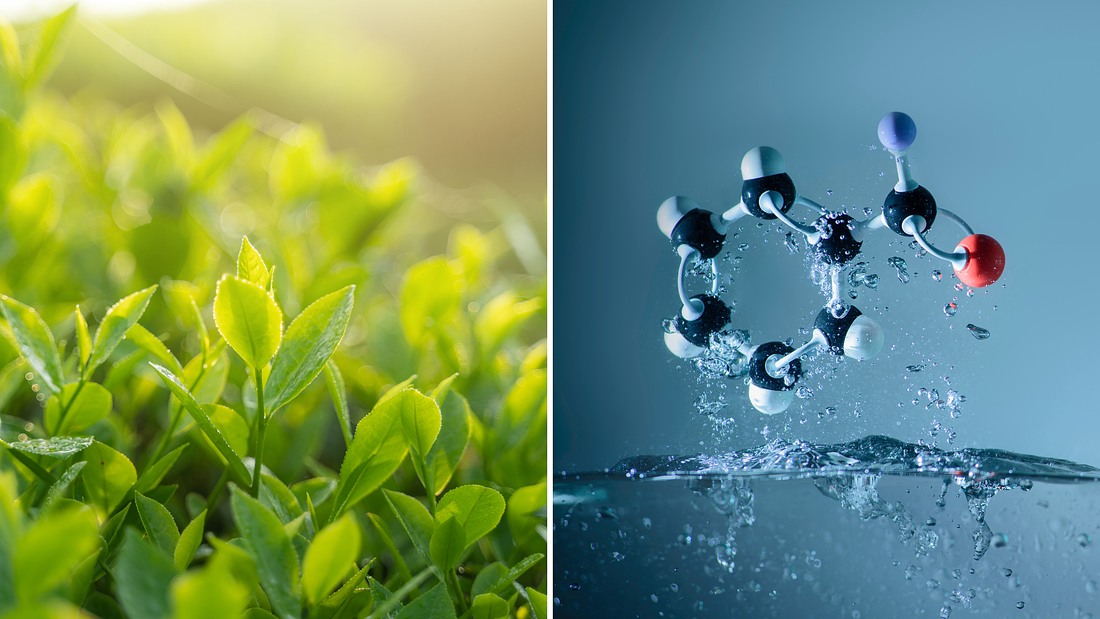Energy sources are not all equal. While caffeine can be a helpful way to boost energy levels and improve mental focus, it's important to understand the differences between natural and synthetic caffeine. At GURU we believe that natural is always better, which is why we use only natural sources of caffeine in our energy drinks, such as green tea, guarana, yerba mate, guayusa, matcha, and l-theanine.
What is Synthetic Caffeine?
Synthetic caffeine is made in a laboratory and is often added to energy drinks and supplements. It's a highly concentrated form of caffeine and is typically cheaper to produce than natural caffeine. However, the production of synthetic caffeine involves the use of chemicals and solvents that can be harmful to both human health and the environment.
Side Effects of Synthetic Caffeine
Because synthetic caffeine is highly concentrated, it can have a stronger and potentially harmful effect on the body. Some of the common side effects of synthetic caffeine include:
- Increased heart rate and blood pressure
- Headaches and migraines
- Anxiety and nervousness
- Insomnia and sleep disturbances
- Dehydration
In addition, synthetic caffeine can be addictive, and long-term use can lead to tolerance, dependence, and withdrawal symptoms.
The Benefits of Natural Caffeine
In contrast, natural sources of caffeine, such as green tea, have been used for centuries for their health benefits. Green tea contains antioxidants and other phytonutrients that can help improve brain function, boost metabolism, and reduce the risk of chronic diseases such as cancer and heart disease. Other natural sources of caffeine, such as guarana, yerba mate, guayusa, and matcha, also contain beneficial compounds that can support overall health and wellness.
Moreover, natural sources of caffeine have a gentler and more sustained effect on the body, which can provide a more stable and longer-lasting energy boost without the jitters, crashes, or other side effects associated with synthetic caffeine. L-theanine, an amino acid found in green tea, can also help reduce stress and promote relaxation, making it a valuable addition to our energy drinks.
In conclusion, at GURU, we believe that natural is always better, especially when it comes to caffeine. By using natural sources of caffeine in our energy drinks, we can provide a healthier, more sustainable, and more effective way to boost energy levels and improve mental focus without compromising on taste or quality.
References
Heckman, M. A., Weil, J., & Gonzalez de Mejia, E. (2010). Caffeine (1, 3, 7-trimethylxanthine) in foods: A comprehensive review on consumption, functionality, safety, and regulatory matters. Journal of food science, 75(3), R77-R87.
Grosso, G., Godos, J., Galvano, F., & Giovannucci, E. L. (2017). Coffee, caffeine, and health outcomes: an umbrella review. Annual review of nutrition, 37, 131-156.
Cornelis, M. C., & El-Sohemy, A. (2007). Coffee, caffeine, and coronary heart disease. Current Opinion in Clinical Nutrition & Metabolic Care, 10(6), 745-751.
Han, L. K., Takaku, T., Li, J., Kimura, Y., & Okuda, H. (2002). Anti-obesity action of oolong tea. International Journal of Obesity, 26(11), 1570-1575.
Haskell, C. F., Kennedy, D. O., Milne, A. L., Wesnes, K. A., & Scholey, A. B. (2008). The effects of L-theanine, caffeine and their combination on cognition and mood. Biological psychology, 77(2), 113-122.

